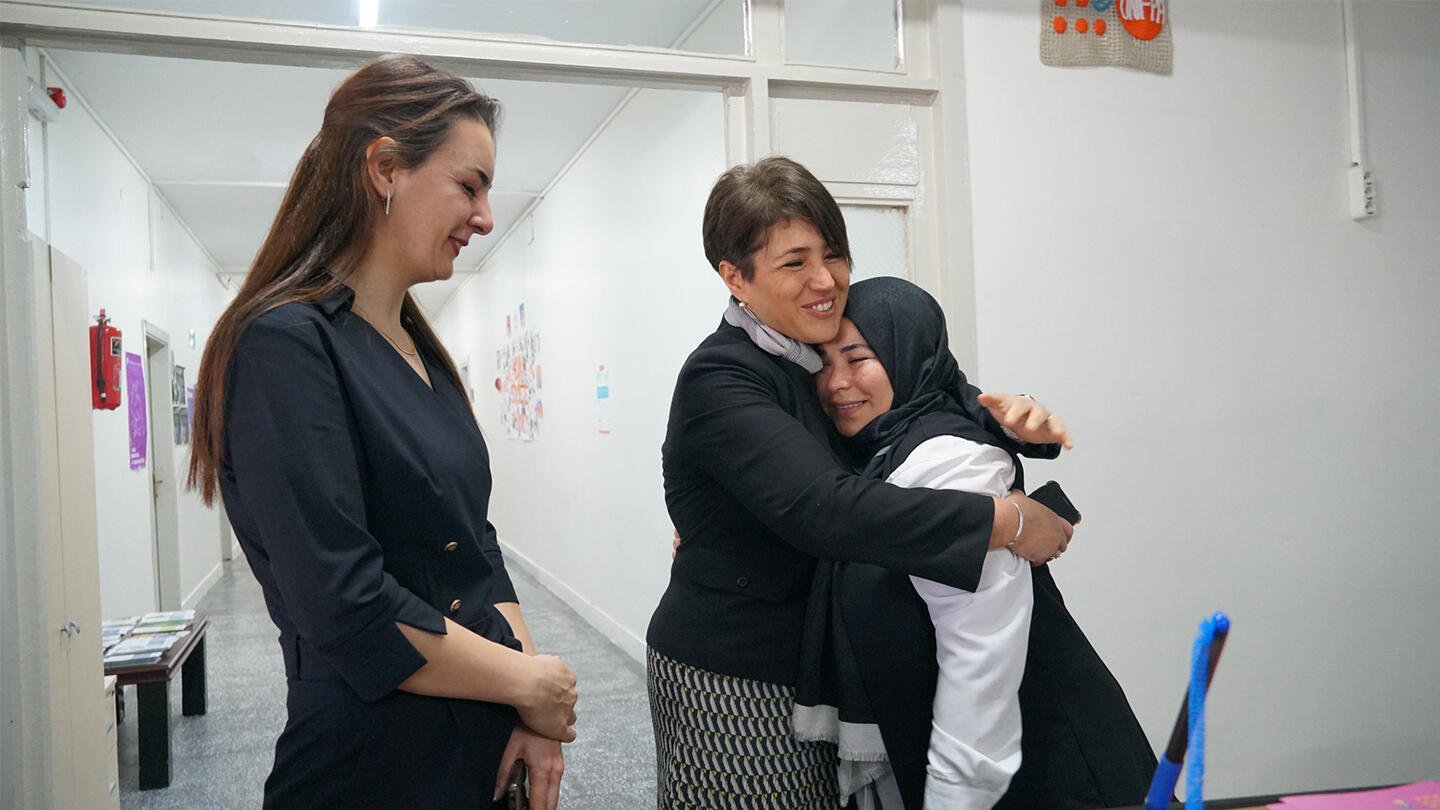Migration and humanitarian crises disproportionately affect women and girls, making them more vulnerable; restricting their access to education, health and protection services; increasing the risks of violence against women and child marriage. United Nations Population Fund, UNFPA, with the financial support of Sweden and in partnership with Osmangazi University, supported vulnerable women and girls in Eskişehir, including migrants, in the fields of women's health and protection, and contributed to the lives of thousands of women with its Women and Girls Safe Space. Despite all the adversities, Rabia explains how life can change through support.
ESKİŞEHİR, TÜRKİYE - “I never gave up on my dream to improve my life. When I started working as a health mediator at the center, where I first volunteered for translation support and then received support myself, my whole life changed; I learned to read and write, I learned to use a computer, and I realized that I could stand on my own feet.”
These words belong to Rabia, a 35-year-old mother of 3. Rabia is the hero of this empowerment story that resonates with us all.
Rabia’s story began when she was born while her parents were migrating from Afghanistan to Iran. After she suddenly lost her parents, she came to Türkiye with her cousin when she was 7 years old. With shining eyes full of hope and determination, she recounts how women who faced the challenges of being denied education, forced into child labor and marriage, and became a mother as a child, can overcome adversities and transform their lives.
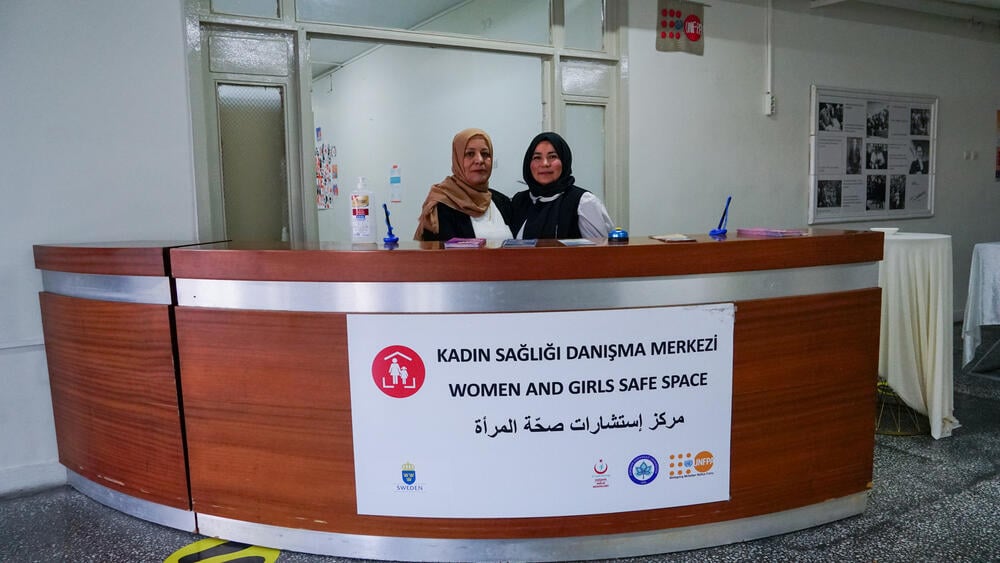
Rabia was of school age when she came to Turkey; however, her cousin, who was her legal guardian at the time, did not allow her to go to school; instead, she forced her to look after her four children at home. When Rabia was 11, she was sent to work in a textile factory. At the age of 17, she got married “to get away from her cousin’s house” in her own words. She became a mother before she turned 18.
“The milestone of my life in my life was my first step into the Women and Girls Safe Space in Eskişehir,” says Rabia. During the pandemic, Rabia, who volunteered to help as a telephone interpreter for women in her neighborhood to communicate with the center staff, was invited to the center one day to pick up a female dignity kit. Noticing Rabia’s determination and her proficiency in Turkish and Persian, the center staff asked Rabia to work at the center as a “health mediator.”
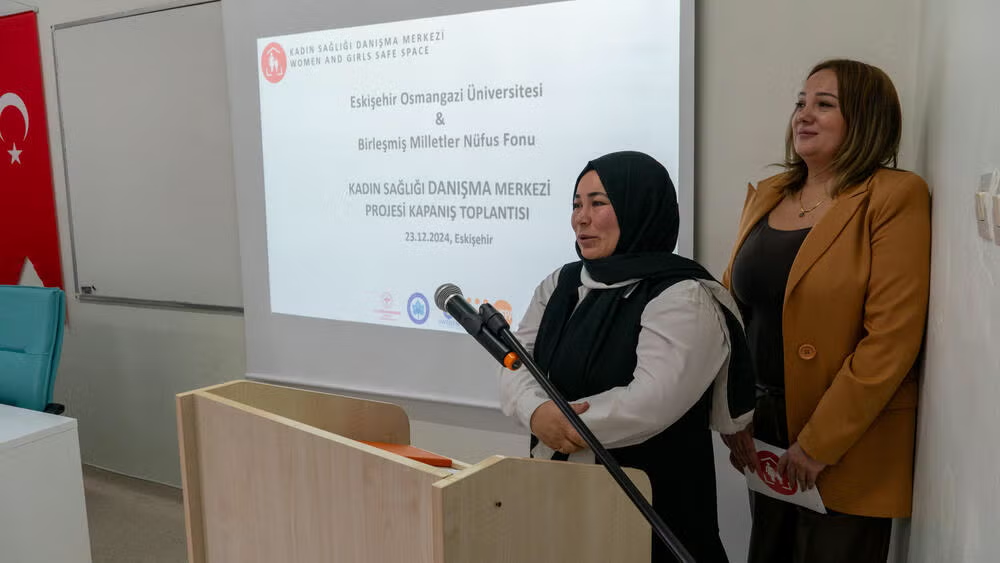
Rabia, who stated that the center staff told her, “You will succeed, you will learn to read and write,” proudly tells that she never put down the book she received the day she came to the Women and Girls Safe Space. Rabia, who learned to read and write, and use a computer at the center after she started working, did not stop there and completed primary and secondary school through distance education, and is now enrolled in high school. With sparkling eyes and great determination, Rabia says, “I will study at university when I finish high school.”
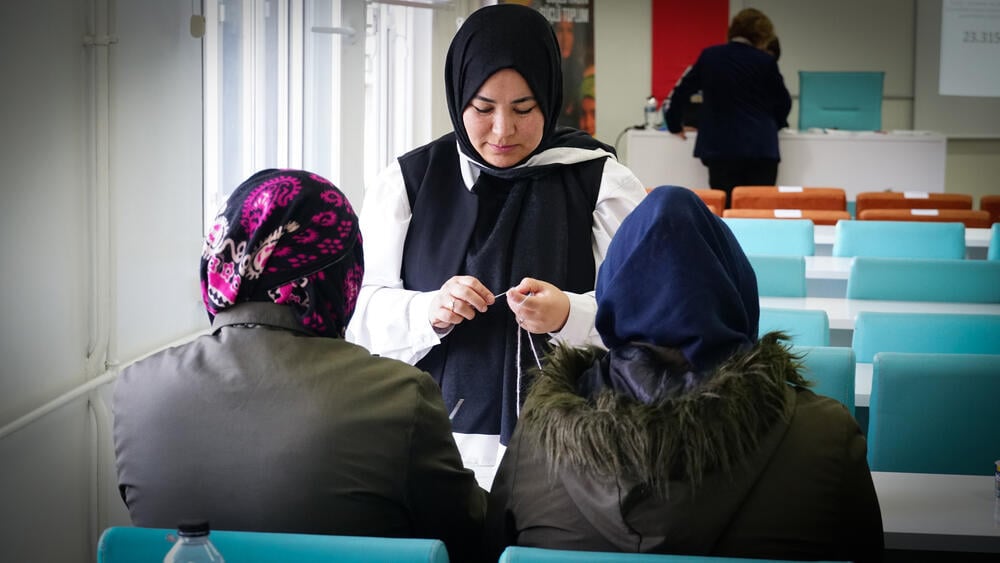
Rabia became stronger while working at the center and supported other women to become stronger. As a health mediator, she conducted household visits in Eskişehir with the center's psychologist; she visited the tents of the seasonal agricultural workers, talked to the women and informed them about the services provided by the Women and Girls Safe Space. She identified their needs and became a mediator for women and girls who needed support like her to receive support.
Now living in Eskişehir with her three children and husband as a strong woman, Rabia says, “Women and girls should trust their capabilities, get support from their elders or organizations like this center when necessary, and not choose early marriage like I did, with the thought of escaping from a difficult life. I have three children, and I raise them by teaching them that they can stand on their own feet even if they are left alone.”
Rabia is one of the 281 million people in the world who have migrated to seek a better and safer life in another country. Her story shows both how women and girls struggle with obstacles and what they can achieve when they are supported.
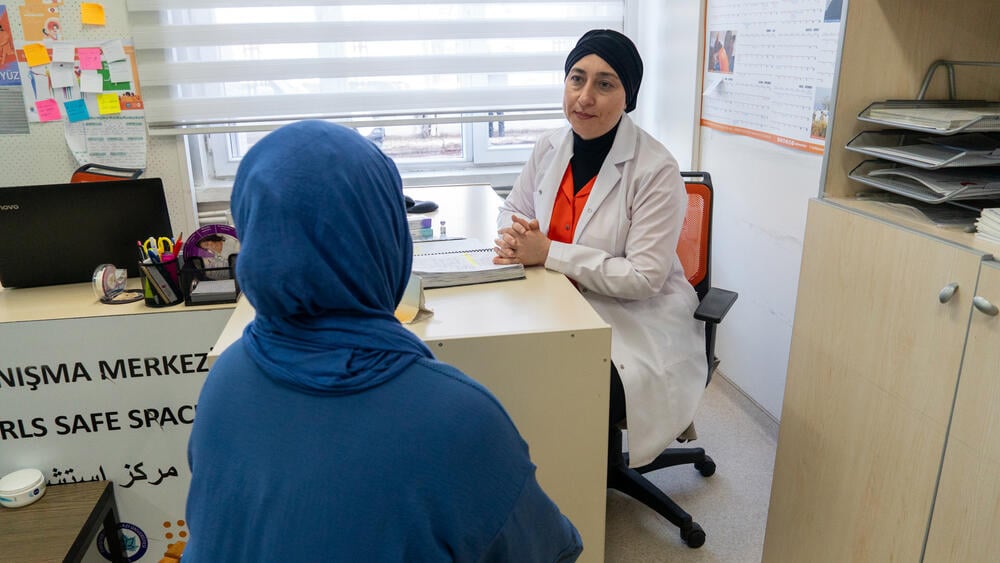
Within the scope of the Women and Girls Safe Space project, which was implemented by the United Nations Population Fund, UNFPA, in partnership with Eskişehir Osmangazi University, and with financial support from Sweden, more than 18 thousand women and girls like Rabia have received free health, protection and mentorship on education services in approximately 8 years; they accessed modern family planning methods and female dignity kits; they have received support from social workers and psychologists in the fields of prevention and protection from violence against women, including child and early marriage. UNFPA Türkiye continues to work with its partners and fund providers in Türkiye to empower women, youth and girls, with a particular focus on vulnerable groups.
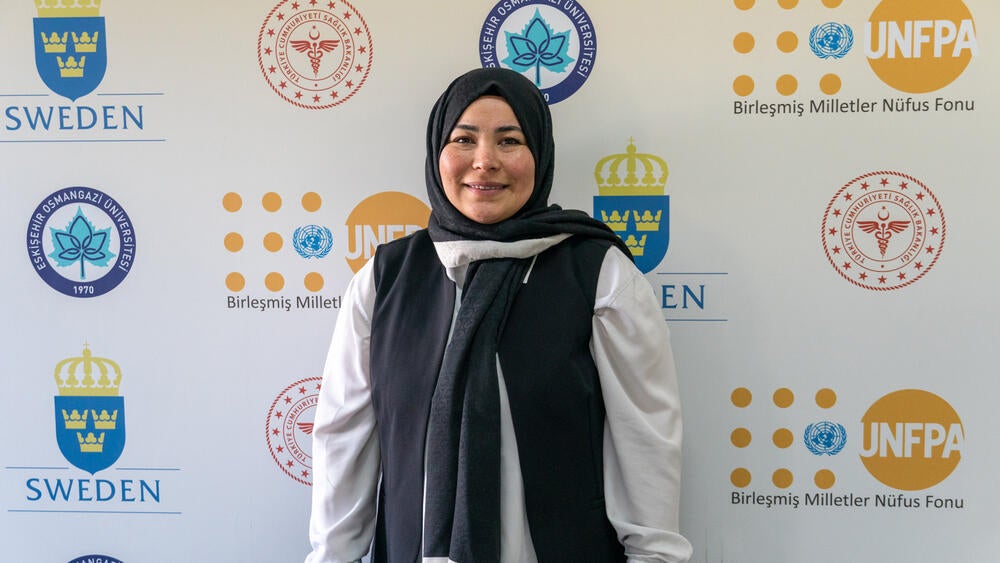
I was told ‘you can do it’ for the first time here, and I did

